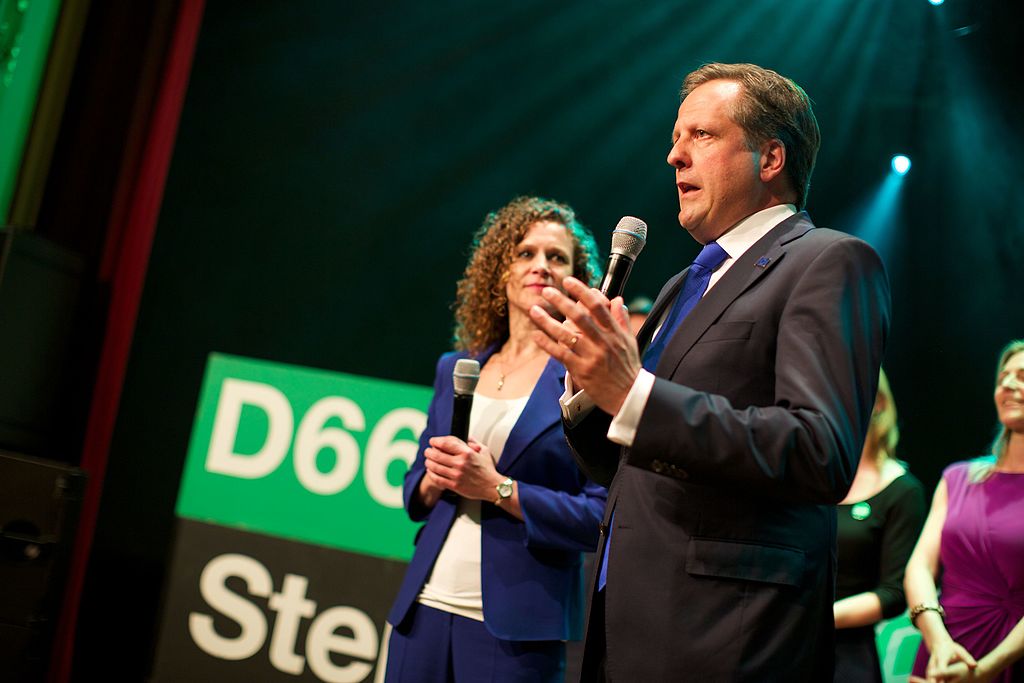From drugs to dachas: VVD tops poll of Dutch political integrity scandals

Coalition leader the VVD has topped an annual ranking of the most scandal-hit political parties for the sixth year in a row.
The right-wing liberal faction featured 12 times in the Political Integrity Index, which lists all the major incidents of the last 12 months. The next most frequently cited party, the anti-immigration PVV, was cited in six scandals, followed by Labour (PvdA) and the progressive-liberal D66 group, each on five.
The index, published this year in the Volkskrant newspaper and previously in weekly news magazine Vrij Nederland, catalogues all breaches of internal rules or codes of conduct by party members that feature in the media. To qualify, the episode must involve a political office bearer at national or local level and either lead to sanctions against the person concerned or trigger their resignation.
The VVD’s scandals in 2018 included foreign affairs minister Halbe Zijlstra’s resignation after it emerged he had lied repeatedly about meeting Russian president Vladimir Putin in his dacha in 2006.
Zijlstra claimed Putin had boasted to him about his ambitions to forge a ‘greater Russia’ from former Soviet satellite states, but later admitted he had overheard the remarks, which were made in a different context, from another room.
Two VVD senators, Loek Hermans and Anne-Wil Duthler, were implicated in conflict of interest cases. Hermans resigned from the upper house over his role at healthcare organisation Meavita, which went bankrupt in 2009, while Duthler was criticised for using her own advisory agency to analyse a bill that she voted on.
Homes and holidays
Another conflict of interest case involved the PvdA’s Senate group leader, Marleen Barth, who stepped down after it emerged she had tried to secure a rent reduction for her husband, former Wassenaar mayor Jan Hoekema, when he stayed on in the mayor’s residence after leaving office. Barth was also criticised for going on holiday during a crucial Senate vote.
The PvdA was involved in the most unlikely political scandal of the year when Almere alderman Tjeerd Herrema was accused of making sexually suggestive phone calls to a journalist. The controversy began when local reporter Marcel Beijer answered a call from Herrema to hear heavy breathing. Herrema claimed he had accidentally ‘butt-dialled’ Beijer from his toilet, but when Beijer claimed he had received an explicit text message from the alderman Herrema’s colleagues forced his resignation.
The PVV’s woes were attributed to the party’s lack of internal structure and failure to screen potential candidates. This led to the enforced departure of its lead candidate for Rotterdam’s local elections, Géza Hegedüs, just a day after he was appointed, after it emerged that he had made racist statements and expressed his admiration for disgraced Holocaust denier David Irving.
PVV tweeters
PVV members were also prone to ill-considered comments on Twitter, which put paid to the careers of Emmen councillor Tom Kuilder and his colleague in Delfzijl, Emil Smeding. The latter responded to news of a fire at a refugee detention centre with a Facebook post suggesting it should be put out with petrol.
The most common source of political scandal was indiscretions in officers’ private lives. Although D66 leader Alexander Pechtold’s affair with a councillor in Drenthe didn’t qualify for inclusion because it was not a factor in his resignation, the party lost local councillor Erwin Duursma, from Tietjerksteradeel, when he was arrested on suspicion of being involved in drug trafficking. After being cleared he told the Leeuwarder Courant that although he had friends in the local Hells Angels branch, nothing untoward had taken place.
Christian Democrat councillor Rob Huijben left the party after it emerged that he had fabricated threatening messages directed at himself, while his party colleague Jan van Cranendonck, acting mayor of Baarle-Nassau, quit after an inquiry found he had declared four visits to a family member on expenses. The total sum claimed was €300.
Although the Netherlands ranks among the least corrupt nations in the world, taking eighth place on Transparency International’s Corruption Perceptions Index, there are concerns about the lack of formalised integrity rules in Parliament.
The European council’s anti-corruption unit Greco published a report last year criticising the lack of oversight, citing the row over Alexander Pechtold’s inheritance of an apartment in Scheveningen from a foreign diplomat. Pechtold was not obliged to declare the €135,000 property in the MPs’ register of gifts.
Thank you for donating to DutchNews.nl.
We could not provide the Dutch News service, and keep it free of charge, without the generous support of our readers. Your donations allow us to report on issues you tell us matter, and provide you with a summary of the most important Dutch news each day.
Make a donation